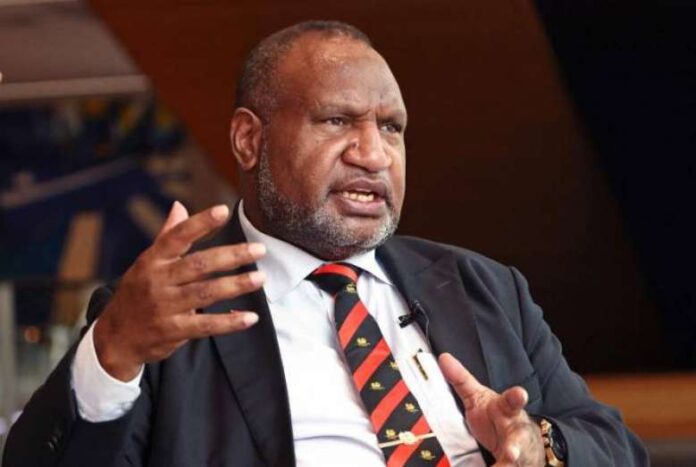Papua New Guinea Leader Takes Offense After Biden Implies His Uncle Was Eaten by Cannibals
Papua New Guinea’s Prime Minister James Marape has accused Joe Biden of disparaging the South Pacific island nation by implying that an uncle of the U.S. President had been eaten by “cannibals” there during World War II. Biden’s comments have offended a key strategic ally as China moves to increase its influence in the region.
Marape’s Response
In a statement released on Sunday, Marape expressed his disappointment with Biden’s remarks. He stated that while it may have been a slip of the tongue, his country does not deserve to be labeled in such a derogatory manner. Marape emphasized that World War II was not the fault of his people, but they were unnecessarily dragged into a conflict that was not of their making.
The Importance of Defense Ties
The timing of this rift is notable as Australian Prime Minister Anthony Albanese began his visit to Papua New Guinea on Monday. Australia is Papua New Guinea’s nearest neighbor, and the two countries share strong defense ties. Albanese and Marape will commemorate these ties by walking part of the pivotal battle ground known as the Kokoda Track later this week. Albanese expressed confidence in the partnership between Australia and Papua New Guinea, stating that their defense and security ties have never been stronger.
White House Response
White House Press Secretary Karine Jean-Pierre addressed the issue on Friday, stating that Biden was speaking to the bravery of his uncle and the many U.S. service members who put their lives on the line. Jean-Pierre emphasized that Biden takes this matter seriously and that his uncle, who served and protected the country, lost his life while serving.
However, it is worth noting that Biden’s account of his uncle’s plane being shot down is not supported by military records. According to a Pentagon report, Second Lt. Ambrose J. Finnegan Jr. was a passenger on a Douglas A-20 Havoc transport plane that crashed into the ocean after both engines failed on May 14, 1944. One crew member survived, but no trace was found of the plane or the other three people on board, including Finnegan.
Marape’s Call for Action
In addition to expressing his disappointment, Marape also called on the U.S. to find its war dead in Papua New Guinea’s jungles and to clean up the wreckage of war. He highlighted that the remains of World War II, including the plane that carried President Biden’s uncle, are scattered all over Papua New Guinea. Marape suggested that it is time for the U.S. to locate as many remains of World War II in Papua New Guinea as possible, including those of servicemen like Ambrose Finnegan.
Marape’s statement was released on the same day he met with China’s Foreign Minister Wang Yi in Port Moresby to discuss building closer relations. This highlights the delicate balance of power in the region and the increasing influence of China. Papua New Guinea, like many other countries in the Pacific, is caught in the middle of a geopolitical struggle between the U.S. and China.
Marape concluded his statement by drawing attention to the ongoing impact of World War II in Papua New Guinea. The country is still littered with remnants of the war, including human remains, plane wrecks, ship wrecks, tunnels, and bombs. The people of Papua New Guinea live daily with the fear of being killed by detonated bombs from World War II.
In light of President Biden’s comments and the strong reaction from Papua New Guinea and other parts of the world, Marape’s call for action serves as a reminder of the lasting effects of war and the responsibility of nations to honor and remember those who sacrificed their lives.

